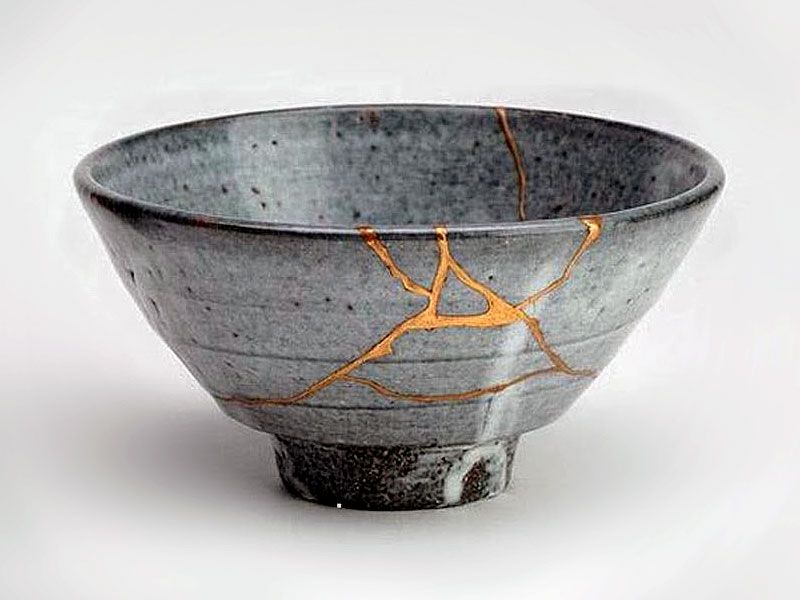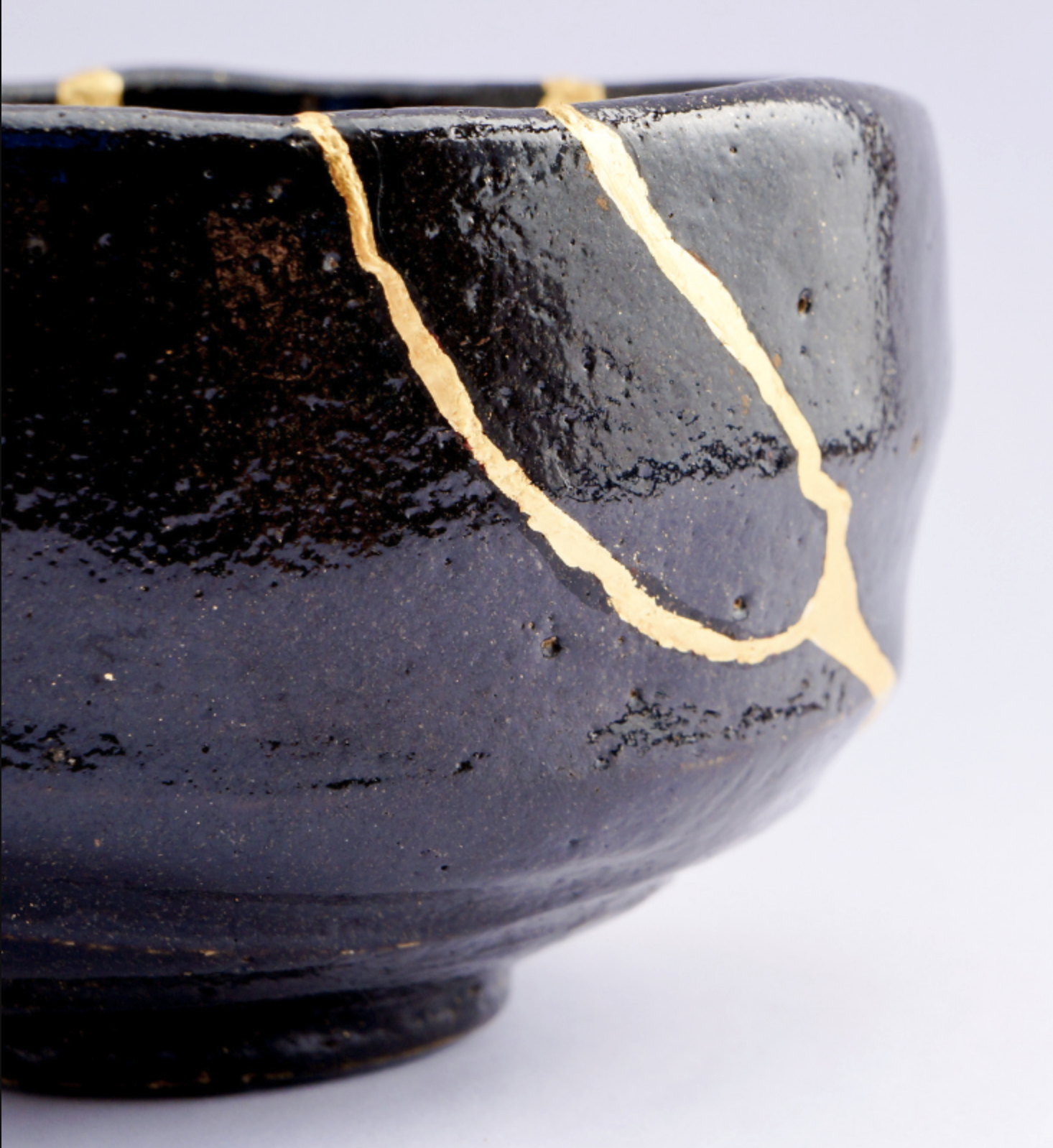The Path of (Im)perfection

The other day I came across a text by the Japanese writer Haruki Murakami (https://www.harukimurakami.com/) that caught my attention. The story revolves around the Jerusalem Prize for Literature in 2009. To provide some context, Murakami had been awarded the prize, but there was a big debate as to whether he should go and accept it, given that Israel was in the midst of a major attack on Gaza, and over a thousand people had lost their lives in that attack.
Friends advised Murakami not to go and accept the prize, readers promised to organize book boycotts if he went, and he did the only thing one would expect from a great writer - he went and wrote about it. He wrote in the form of a speech that he delivered at the award ceremony.
The speech is brilliant. It is reproduced here at the end of this text as a source of inspiration for you. The gift of communication is something that great writers possess, and it fascinates me. Being able to express oneself clearly and with connection is an art. I ended up buying a book of his called "What I Talk About When I Talk About Running" (Link here).
It seems like a book about running, right? Wrong. The book is about discipline. The discipline to write, to run a marathon, to change professions (Murakami used to work in a bar before becoming a writer), to persist with a method until finding the right formula.
Japanese culture is a reference in this pursuit of perfection. From Toyota's manufacturing models to the beautiful ancient architecture of the country, to the samurais and their discipline.
We are all surrounded by this pursuit every day. From the perfection of the body to the perfection in our careers. Every day, We hear stories of entrepreneurs who created products and made companies grow smoothly, a perfect success.
However, nothing is linear, and the world/we are imperfect. Some of us are just very good at not showing those imperfections.
Murakami didn't just go out there, quit being a bar manager, and start writing the way he does. Gabriel García Márquez didn't write "Love in the Time of Cholera" (https://amzn.to/3q2Mz83) overnight, and Saramago didn't write "Blindness" (https://amzn.to/3WjgXY1) overnight either. It required a lot of discipline, mistakes, and attempts to reach that level. It required the discipline of a marathon runner to get there.
And then, one fine day, an article about Kintsugi, link here, came to my attention. Kintsugi is an ancient Japanese art of ceramic repair:
All things are created and destined to be broken someday, and I think being broken or damaged is never a bad thing.
All of us develop scars throughout our lives. But these scars should never be hidden. Our imperfections can be the birth of something new.
Hiroki Kiyokawa, Japanese Restorer
Kintsugi is the art of embracing imperfection. It is the technique of restoring "broken things" with lacquer, covering the "scars" with gold:

Instead of hiding the broken parts of an object, they are highlighted. These scars contain their history and transform it into a unique piece.

... And I feel like through this job, I am also restoring the broken parts of myself.
I think our broken parts can be mended. So we should never give up on life.
Try not to hide what you've gone through and your history, even if it was a big accident. You should embrace it. And you will be reborn because of that accident.
Hiroki Kiyokawa, Japanese Restorer
The analogy here is that our nonlinear and imperfect journey should embrace imperfection. These marks are what have brought us to where we are, and seeing them, recognizing them, and embracing them will allow us to take the next step. It is the resilience to break some pieces along the way, pause, repair ourselves, and keep moving forward.
We must value and learn from these scars. That is why I much prefer studying failures and learning from them than celebrating perfect stage journeys, which we know are only hiding the flaws left along the way.
And the world is full of these real stories that make us think!
Steve Jobs talked about this in his commencement speech at Stanford University in 2005. It's worth watching this video if you haven't seen it yet, and revisiting it if you have. He shares about the misfortunes in his early life, his adoption, his decision to drop out of college, and how all of that led him to become who he was.
...you can’t connect the dots looking forward; you can only connect them looking backward. So you have to trust that the dots will somehow connect in your future. You have to trust in something — your gut, destiny, life, karma, whatever. This approach has never let me down, and it has made all the difference in my life.
Steve Jobs, Stanford, 2005
Ben Horowitz says in his book "The Hard Thing About Hard Things: Building a Business When There Are No Easy Answers" (https://amzn.to/3C1E5RH) how he faced numerous challenges throughout his career in his early companies, almost leading him to bankruptcy and how he overcame each of these obstacles. It's not a book about beautiful startup stories; it's a book about real life that is rich precisely because it shows the scars he gained along his journey. It's one of the books I recommend to new entrepreneurs when they ask me, "What do I need to start a startup?"
And my favorite reference is the story of the Endurance and Ernest Shackleton, with his expedition in 1914 to Antarctica with the goal of crossing the entire continent on foot (https://amzn.to/3OxID9T). Everything went wrong; the ship became trapped in the Antarctic ice in 1915, sank, and its crew was stranded on the ice until September 1916 when Shackleton, who had set out in a small rowboat to seek help, returned in another expedition, successfully rescuing all the crew members alive. It's a story of an entrepreneur who faced every possible problem from the very beginning but managed to save his team and succeed even in failure. I need to write about this someday here...
And how does all of this connect?
Have the discipline to pursue perfection, but embrace imperfection along the way. It's not about celebrating mistakes but learning from them.
People/teams who don't understand this won't innovate because making mistakes is not in their script. They won't reach the next level, they won't cross Antarctica on foot, they won't create incredible products because they confine themselves to only having successes.
Whether it's building a company, a product, a family, or personal growth, your journey should embrace the truth that failures, imperfections, and scars will surround it. Still, you should have enough resilience to move forward and enough discipline to take the next step every day. These failures should be clear to you as lessons and part of your story. Without them, you wouldn't be where you are today and won't reach where you want to be. You will connect all the dots in the end.
Jerusalem Prize 2009, by Haruki Murakami
I have come to Jerusalem today as a novelist, which is to say as a professional spinner of lies. Of course, novelists are not the only ones who tell lies. Politicians do it, too, as we all know. Diplomats and military men tell their own kinds of lies on occasion, as do used car salesmen, butchers and builders. The lies of novelists differ from others, however, in that no one criticizes the novelist as immoral for telling lies. Indeed, the bigger and better his lies and the more ingeniously he creates them, the more he is likely to be praised by the public and the critics. Why should that be?
My answer would be this: namely, that by telling skilful lies--which is to say, by making up fictions that appear to be true--the novelist can bring a truth out to a new location and shine a new light on it. In most cases, it is virtually impossible to grasp a truth in its original form and depict it accurately. This is why we try to grab its tail by luring the truth from its hiding place, transferring it to a fictional location, and replacing it with a fictional form. In order to accomplish this, however, we first have to clarify where the truth lies within us. This is an important qualification for making up good lies.
Today, however, I have no intention of lying. I will try to be as honest as I can. There are a few days in the year when I do not engage in telling lies, and today happens to be one of them. So let me tell you the truth. In Japan a fair number of people advised me not to come here to accept the Jerusalem Prize. Some even warned me they would instigate a boycott of my books if I came. The reason for this, of course, was the fierce battle that was raging in Gaza. The U.N. reported that more than a thousand people had lost their lives in the blockaded Gaza City, many of them unarmed citizens--children and old people.
Any number of times after receiving notice of the award, I asked myself whether traveling to Israel at a time like this and accepting a literary prize was the proper thing to do, whether this would create the impression that I supported one side in the conflict, that I endorsed the policies of a nation that chose to unleash its overwhelming military power. This is an impression, of course, that I would not wish to give. I do not approve of any war, and I do not support any nation. Neither, of course, do I wish to see my books subjected to a boycott.
Finally, however, after careful consideration, I made up my mind to come here. One reason for my decision was that all too many people advised me not to do it. Perhaps, like many other novelists, I tend to do the exact opposite of what I am told. If people are telling me--and especially if they are warning me--"Don't go there," "Don't do that," I tend to want to "go there" and "do that". It's in my nature, you might say, as a novelist. Novelists are a special breed. They cannot genuinely trust anything they have not seen with their own eyes or touched with their own hands. And that is why I am here. I chose to come here rather than stay away. I chose to see for myself rather than not to see. I chose to speak to you rather than to say nothing.
Please do allow me to deliver one very personal message. It is something that I always keep in mind while I am writing fiction. I have never gone so far as to write it on a piece of paper and paste it to the wall: rather, it is carved into the wall of my mind, and it goes something like this:
"Between a high, solid wall and an egg that breaks against it, I will always stand on the side of the egg."
Yes, no matter how right the wall may be and how wrong the egg, I will stand with the egg. Someone else will have to decide what is right and what is wrong; perhaps time or history will decide. If there were a novelist who, for whatever reason, wrote works standing with the wall, of what value would such works be?
What is the meaning of this metaphor? In some cases, it is all too simple and clear. Bombers and tanks and rockets and white phosphorus shells are that high, solid wall. The eggs are the unarmed civilians who are crushed and burned and shot by them. This is one meaning of the metaphor.
This is not all, though. It carries a deeper meaning. Think of it this way. Each of us is, more or less, an egg. Each of us is a unique, irreplaceable soul enclosed in a fragile shell. This is true of me, and it is true of each of you. And each of us, to a greater or lesser degree, is confronting a high, solid wall. The wall has a name: it is "The System." The System is supposed to protect us, but sometimes it takes on a life of its own, and then it begins to kill us and cause us to kill others--coldly, efficiently, systematically.
I have only one reason to write novels, and that is to bring the dignity of the individual soul to the surface and shine a light upon it. The purpose of a story is to sound an alarm, to keep a light trained on the System in order to prevent it from tangling our souls in its web and demeaning them. I fully believe it is the novelist's job to keep trying to clarify the uniqueness of each individual soul by writing stories--stories of life and death, stories of love, stories that make people cry and quake with fear and shake with laughter. This is why we go on, day after day, concocting fictions with utter seriousness.
My father died last year at the age of ninety. He was a retired teacher and a part-time Buddhist priest. When he was in graduate school, he was drafted into the army and sent to fight in China. As a child born after the war, I used to see him every morning before breakfast offering up long, deeply-felt prayers at the Buddhist altar in our house. One time I asked him why he did this, and he told me he was praying for the people who had died in the battlefield. He was praying for all the people who died, he said, both ally and enemy alike. Staring at his back as he knelt at the altar, I seemed to feel the shadow of death hovering around him.
My father died, and with him he took his memories, memories that I can never know. But the presence of death that lurked about him remains in my own memory. It is one of the few things I carry on from him, and one of the most important.
I have only one thing I hope to convey to you today. We are all human beings, individuals transcending nationality and race and religion, fragile eggs faced with a solid wall called The System. To all appearances, we have no hope of winning. The wall is too high, too strong--and too cold. If we have any hope of victory at all, it will have to come from our believing in the utter uniqueness and irreplaceability of our own and others' souls and from the warmth we gain by joining souls together. Take a moment to think about this. Each of us possesses a tangible, living soul. The System has no such thing. We must not allow the System to exploit us. We must not allow the System to take on a life of its own. The System did not make us: we made the System. That is all I have to say to you.
I am grateful to have been awarded the Jerusalem Prize. I am grateful that my books are being read by people in many parts of the world. And I am glad to have had the opportunity to speak to you here today.
Haruki Murakami
February 2009